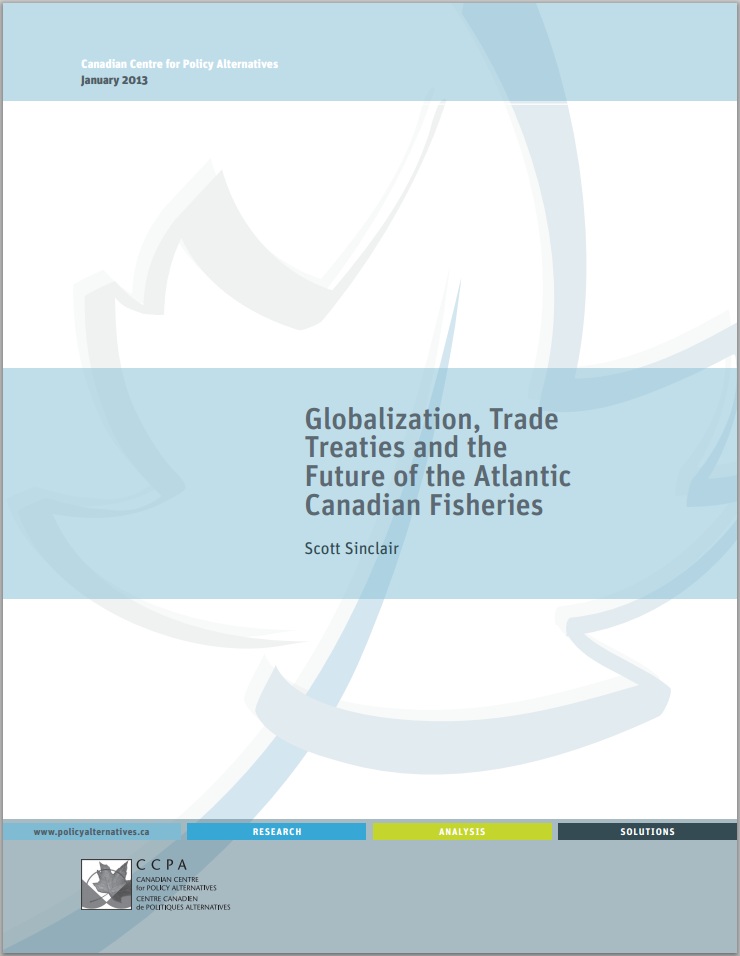This is an archive of news stories and research from the National Union of Public and General Employees. Please see our new site - https://nupge.ca - for the most current information.
New treaties could undermine the ability of Canadians to pursue public policies that curb domination of the fisheries by large corporations and help spread the benefits of the fishery.
 Ottawa (10 Jan. 2013) – The proposed Canada-EU Comprehensive Economic and Trade Agreement (CETA) and other trade and investment treaties threaten the sustainability of fisheries and fishing communities, says a new report from the Canadian Centre for Policy Alternatives (CCPA).
Ottawa (10 Jan. 2013) – The proposed Canada-EU Comprehensive Economic and Trade Agreement (CETA) and other trade and investment treaties threaten the sustainability of fisheries and fishing communities, says a new report from the Canadian Centre for Policy Alternatives (CCPA).
Globalization, Trade Treaties and the Future of the Atlantic Canadian Fisheries (available here) describes how new treaties could undermine the ability of Canadians to pursue public policies that curb domination of the fisheries by large corporations and help spread the benefits of the fishery more widely among independent fishers and coastal communities.
When properly regulated within sustainable ecological limits, international trade is vital to the economic well-being of the Atlantic Canadian fisheries. But the trade and investment treaties now under negotiation go far beyond eliminating tariffs.
“Just as the freezer trawlers that ply the world’s oceans today are far more extractive and destructive than earlier fishing vessels, so the latest trade and investment treaties are more intrusive than previous ones,” says the report’s author, CCPA senior researcher Scott Sinclair.
Leaked documents reveal that the EU is pressuring Newfoundland and Labrador and Quebec to abolish minimum processing requirements for fish. Minimum processing requirements provide provincial governments with critical leverage to maximize local benefits. Sinclair notes that “without such regulation, these decisions would be left to large fish processing companies to make with no consideration for any other factors than how it affects their corporate bottom line.”
While the CETA exemptions protecting federal regulatory authority over fisheries are fairly strong, there are serious shortcomings in the proposed reservations for provincial measures. Unless provincial governments insist on stronger protection, the report concludes, “they will be surrendering their future legislative and constitutional power through which the wealth generated by fish and other natural resources could contribute to the sustainable development of their province.”
More information:
Globalization, Trade Treaties and the Future of the Atlantic Canadian Fisheries
NUPGE
The National Union of Public and General Employees (NUPGE) is one of Canada's largest labour organizations with over 340,000 members. Our mission is to improve the lives of working families and to build a stronger Canada by ensuring our common wealth is used for the common good. NUPGE
